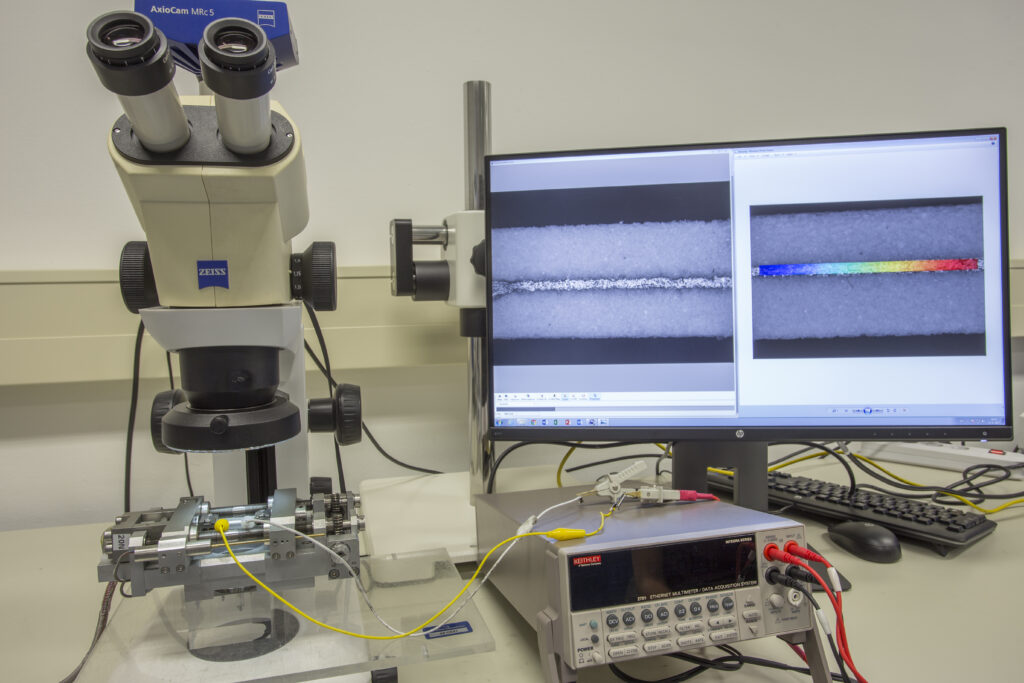Additive manufacturing has found its way into a broad variety of applications in all kinds of engineering fields, including structural electronics. Here, functional nanomaterials and conductive ink formulations are printed with direct writing techniques for the production of lightweight and complex structural parts with embedded electronics and fully encapsulated interconnecting conductive tracks.

The electro-mechanical performance of these printed conductive tracks strongly depends on the composition of the conductive inks and the microstructure obtained after processing of the inks. To analyse the performance, i.e. the effective resistivity, of a track subjected to mechanical loading, a numerical framework for the electro-mechanical analysis of conductive tracks is developed. To account for the effects of material degradation, a phase-field variable is incorporated that describes the fracture behaviour in a diffuse manner: the continuous phase-field variable ranges between 0 and 1, indicating an intact and fully damaged material, respectively. The phase-field is driven by a mechanical force and is directly coupled to the mechanical stiffness and electric conductivity of the material to account for the effects of material damage.
In the ongoing research, the effective resistivity of simplified 2D & 3D representations of conductive tracks under mechanical loading is analysed and compared to experimental results.
.
| Personnel: | Britt Cordewener, Marc Geers, Joris Remmers (PI) |
| Funding: | Horizon 2020, Grant agreement nr. 814485 |
| Website: | https://lee-bed.eu/ |